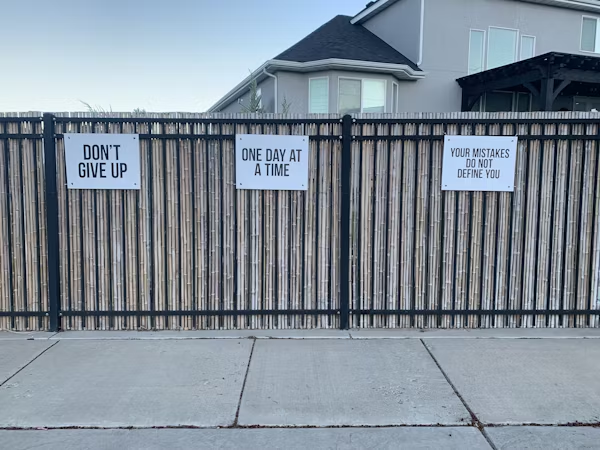Just like the endless finish line that moves away the faster we run, perfection is a mirage. However, we believe that it’s possible to achieve it if we work hard enough. Instead of encouraging us to do good and experiment with life, try out new things, this ideal only forces us within tight deadlines, expectations, and resources. It’s time to let go of this, and why not today? It’s as good as any other day. People who searched “What is Liven?” and used these strategies to admit that they don’t repeat the same patterns as before. And more than that, these exercises are also fun.
Thought Detective
What drives us to achieve all As and give 100% effort to every task? Usually, this misplaced motivation stems from harmful thoughts we hold about ourselves and the world. Such convictions can hide so well that pinpointing them is a Sherlock Holmes case. This task is offered to users after looking for “What is Liven app?”, downloading it, and finding a new framework.
Write down a recent situation where you demanded perfection from yourself. If you can’t remember (perfectionists often do not notice these moments), ask someone who knows you well. What were your thoughts, the driver behind your demand? Try to finish the phrase: “I have to do it ideally because…” You might need to go in circles a few times to get to the core of that inner struggle. But you have a chance to find out why you want to be perfect and what stops you from ignoring this push.
Catch and Reframe
Reframing is a powerful cognitive-behavioral therapy (CBT) tool. It can help you turn your self-criticism into a more curious and open perception of imperfection. 
You can use the thoughts you have found in the Thought Detective or catch those that emerge when you’re struggling with perfection. Write that thought down as it is, even if it’s unpleasant. Then, reflect on whether it really means what you think. For example, if you failed one essay, does that mean that you are a terrible writer? Of course not. The goal of this activity is to encourage you to see each situation more healthily. It doesn’t mean being unrealistically optimistic (in this case, the reframing won’t work), just a softer, more objective version. For example:
Instead of “I made a few mistakes here, which means I’m a failure,” write down “I made a few mistakes here, and it’s fine. I did 90% of it well! It’s better than my previous result. I’m learning.”
A 70% Rule
It might feel uncomfortable, but not putting all your energy into the goal and still achieving your results can be quite relieving. Next time you work on a project, stop when you feel it’s 70% complete. You’ll feel uncomfortable, but going through this sensation and noticing that the world didn’t collapse? It will come as well.
The Ugly Project
All those perfect sketchbooks, beautiful sculptures, and impressive makeup looks trick us into thinking that an unfinished sketch or a smudged silhouette of our recent trousers is something unworthy. But we only see what others show us. Everyone makes mistakes — not making them means we don’t learn.
So do it the other way. Organize an Ugly Project. Do things imperfectly on purpose. Draw a flower, a human, or a dog with all the terrible effort in the world, and make it very silly. Goofy. Not something that you would want to film and show on TikTok. There’s freedom in not coloring within the borders.
The “Yeah I Messed Up” Journal
Keep a journal of moments when you made a mistake or failed. Record all those awkward moments when you didn’t do well by your sports team or when you left a hilarious typo in your email to a professor. Take this journal with you — it can be a tiny thing in your pocket — and just remember to laugh as you reread these situations. Over time, you’ll realize that it’s much easier to recall them warmly than you imagined.
A Bad Karaoke Night
Invite your outgoing friends and ask them to sing terribly with you to some of the worst songs that exist in the universe (according to your rating, of course). Will it be awkward? Almost definitely yes. But karaoke is supposed to be terrible! The goal is to make everyone involved laugh to tears.
If you’re not sure you can handle other people’s attention, do a karaoke night at someone’s home. Organize a rating of the worst performances and give rewards to the outstanding winners.
A Week of Mismatched Outfits
Undoing the basics of what makes us seem collected and always prepared can be anxiety-inducing and very anti-perfection. While it would be great to have a fashion week where you attend your office in pajamas, it is a risk not all can afford (though if you can, why not?). Still, there’s nothing wrong with wearing mismatched socks under your clothes. 
On a weekend, pick up the pieces that don’t match entirely — either in color or silhouette — and go outside. Have fun. You may get a few glances, sure, but maybe a few smiles too. The world doesn’t end when someone decides not to fit into some strict and often imaginary limitations.
Conclusion
Perfection is impossible, even if we put all of our lives into achieving it. When we think that we’re at the top, something changes, and we are again far away. Try the exercises above, especially paying close attention to your thoughts. Our strict views don’t need to be attacked or hated; they will vanish when we start laughing at ourselves, making a mess, and inviting our friends on this anti-ideal journey. There will be steps back, but it’s OK: after all, we don’t need to do it perfectly.
